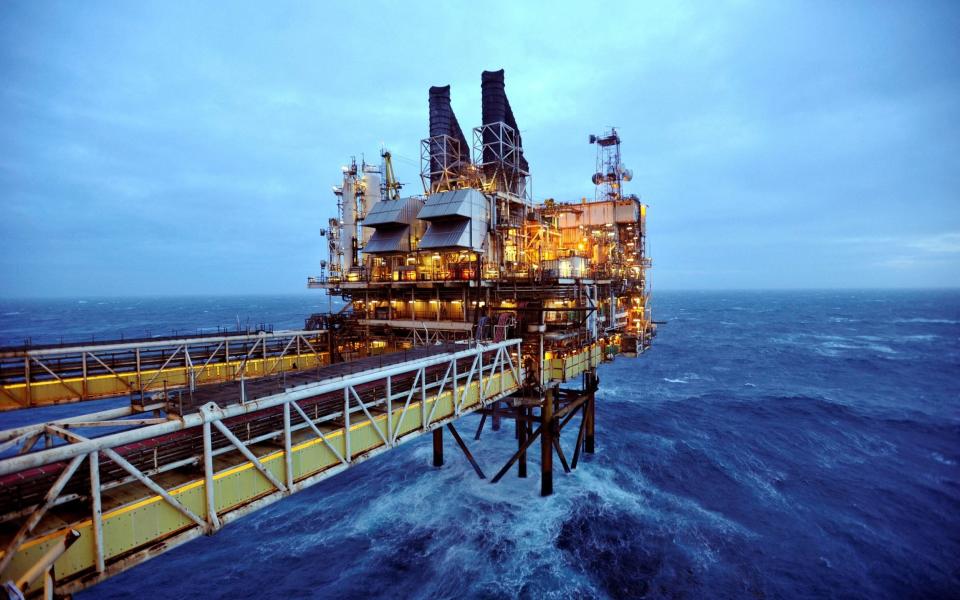Biggest North Sea producer refuses to drill new oil wells because of windfall tax

Britain’s largest North Sea oil producer is refusing to bid for new UK oil and gas wells and reviewing its investments in response to the Government’s tax raid on the sector.
Harbour Energy said it had decided not to bid for new blocks in the ongoing North Sea licensing round, the first since 2019, after the Government imposed a windfall tax on oil and gas producers earlier in the year.
The company, which has just been demoted to the FTSE 250 after a share price slide, said it was also reviewing investment levels.
Harbour Energy said: “As a result of the extension of the energy profits levy announced in the Government’s Autumn Statement, we are reviewing investment levels and company-wide capital allocation.
“This review is ongoing and, in the meantime, we have decided not to submit bids as part of this licensing process.
“We have good opportunities within our existing North Sea and International portfolios, and these will be our focus at this time.”
The move is a blow for the Government's ambitions to boost domestic energy production, amid heightened concern about the security of supply.
The North Sea licensing round was launched in October, with then business secretary Jacob Rees-Mogg saying it was “more important than ever we make the most of sovereign energy resources”.
Since then, a windfall levy on oil companies, which was first introduced in May, has been increased to take the overall tax rate on North Sea producers from 40pc to 75pc until 2028.
The windfall tax was introduced to help pay for subsidised household energy bills amid soaring oil and gas prices. Higher prices have handed higher profits to fossil fuel producers, which proponents of the windfall tax have argue justify the special levy.
However, the industry has warned it risks curbing investment.
TotalEnergies, the French oil giant, has announced plans to cut spending in the North Sea by £100m next year due to the tax.
The FTSE 100 oil giant Shell has also said it is reviewing plans to invest £25bn in Britain’s energy system due to the tax.
David Bunch, Shell’s UK chairman, said in late November the tax "brings a strong headwind", adding: “In terms of future projects, you're gonna have to rerun the economics and take a view on a project by project basis.”
The windfall tax includes generous investment allowances meaning business can claim £91.40 in tax relief for every £100 invested. However, this is of little value to companies whose projects are in the production phase.
Harbour said in early November it expects to pay $900m in UK taxes in 2022, of which $400m is due to the windfall tax. This estimate was given before the tax was extended by Chancellor Jeremy Hunt in the Autumn Statement on November 17.
Harbour produced 207,000 barrels of oil equivalent per day in the nine months to September 2022. As well as the UK, it has assets in Norway, Indonesia, Vietnam and Mexico.
The company's shares closed at 313.62p on Thursday, valuing the company at £2.6bn, compared to 530p in mid-April.

 Yahoo Finance
Yahoo Finance 